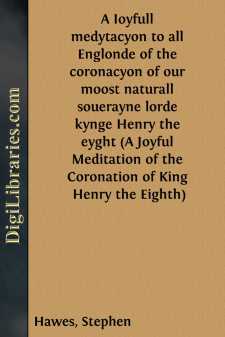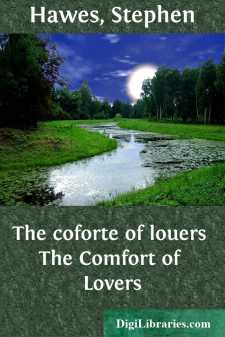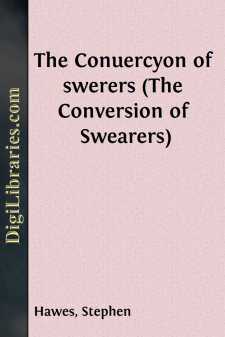Categories
- Antiques & Collectibles 13
- Architecture 36
- Art 48
- Bibles 22
- Biography & Autobiography 813
- Body, Mind & Spirit 142
- Business & Economics 28
- Children's Books 17
- Children's Fiction 14
- Computers 4
- Cooking 94
- Crafts & Hobbies 4
- Drama 346
- Education 46
- Family & Relationships 57
- Fiction 11829
- Games 19
- Gardening 17
- Health & Fitness 34
- History 1377
- House & Home 1
- Humor 147
- Juvenile Fiction 1873
- Juvenile Nonfiction 202
- Language Arts & Disciplines 88
- Law 16
- Literary Collections 686
- Literary Criticism 179
- Mathematics 13
- Medical 41
- Music 40
- Nature 179
- Non-Classifiable 1768
- Performing Arts 7
- Periodicals 1453
- Philosophy 64
- Photography 2
- Poetry 896
- Political Science 203
- Psychology 42
- Reference 154
- Religion 513
- Science 126
- Self-Help 84
- Social Science 81
- Sports & Recreation 34
- Study Aids 3
- Technology & Engineering 59
- Transportation 23
- Travel 463
- True Crime 29
Stephen Hawes
Stephen Hawes was an English poet and courtier during the reign of Henry VII, known for his allegorical and didactic writings. His most famous work is "The Pastime of Pleasure," which explores themes of moral virtue through a chivalric romance. Hawes was heavily influenced by medieval traditions and the works of earlier poets like Geoffrey Chaucer. Although not widely read today, his works were significant in the transition between medieval and Renaissance literature in England.
Author's Books:
Sort by:
by:
Stephen Hawes
The prologue THe prudent problems / & the noble werkes Of the gentyll poetes in olde antyquyte Vnto this day hath made famous clerkes For the poetes Wrote nothynge in vanyte But grounded them on good moralyte Encensynge out the fayre dulcet fume Our langage rude to exyle and consume The ryght eloquent poete and monke of bery Made many fayre bookes / as it is probable From ydle derkenes / to...
more...
by:
Stephen Hawes
The prologe. WHan I aduert in my remembraunce The famous draughtes of poetes eloquent Whiche theyr myndes dyd well enhaunce Bokes to contryue that were expedyent To be remembred without Impedyment For the profyte of humanyte This was the custume of antyquyte. I now symple and moost rude And naked in depured eloquence For dulnes rethoryke doth exclude Wherfore in makynge I lake intellygence Also...
more...
by:
Stephen Hawes
Some do endyte / vpon good moralyte Of chyualrous actes / done in antyquyte Whose fables and storyes ben pastymes pleasaunt To lordes and ladyes / as is theyr lykynge Dyuers to moralyte / ben oft attendaunt And many delyte to rede of louynge Youth loueth aduenture / pleasure and lykynge Aege foloweth polycy / sadnesse and prudence Thus they do dyffre / eche in experyence I lytell or nought / experte in...
more...
by:
Stephen Hawes
SeeMeBe(kyndeAgayneMy payneReteyne(in myndeMy swete bloodeOn the roodeDyde the good(my broderMy face ryght redMyn armes spredMy woundes bled(thynke none oderBeholde thou my sydeWounded so ryght wydeBledynge sore that tyde(all for thyn owne sakeThus for the I smertedWhy arte þharde hertedBe by me conuerted(& thy swerynge aslakeTere me nowe no moreMy woundes are soreLeue swerynge therfore(and come to...
more...





